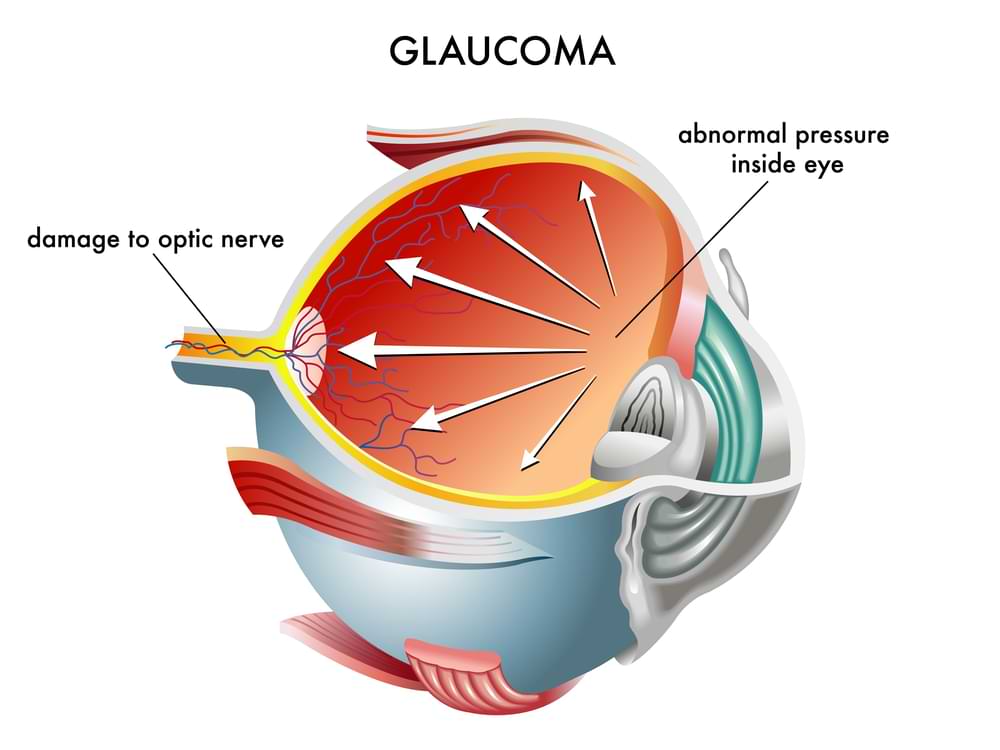Protect Your Vision: Glaucoma Treatments Available in Hobart
Have you ever observed a subtle shift in your eyesight and wondered about its significance? Often, we might brush off these variations, assuming they’re just part of getting older. However, did you realize that subtle changes could be indicative of more serious issues such as glaucoma, a condition that doesn’t exclusively affect older adults and doesn’t always present with clear symptoms?
A common misconception is that glaucoma is only a concern in later life. However, glaucoma can affect people of various ages, and early detection is key. In fact it has been reported by Glaucoma Australia that approximately 300,000 Australians have glaucoma, but only half are aware of it. This statistic underscores the importance of regular eye examinations for early detection and management of this condition.
Glaucoma is one of those eye conditions that can sneak up on you quietly. It’s a group of eye diseases that damage the optic nerve, crucial for good vision, and is often linked to an increase in pressure inside the eye.
I’m Martin Robinson, the principal optometrist and owner of Martin’s Eyecare, working alongside my experienced colleague, Adam Barresi. We’ve both seen the devastating impact of glaucoma on patients not just here in Hobart, but also in regional Australia and developing countries. Our expertise in advanced glaucoma analysis and detailed progression mapping allows us to diagnose and manage glaucoma effectively, even in its early stages.
Your eye health deserves personalized attention and care. At our eye care practice, we’re committed to providing just that. Whether you’re experiencing changes in your vision or it’s time for your regular check-up, we’re here to offer individualized care.
Take the first step towards safeguarding your vision. Book an appointment with us today for a comprehensive eye exam.
Or if you’d like to learn more about Glaucoma treatment in Hobart, keep reading.
| Number | Explanation |
|---|---|
| 12% | Percentage of non-refractive vision loss in Australians aged 40 and above attributed to glaucoma |
| 3.7% | Proportion of Australians over the age of 40 affected by glaucoma |
| 370,000 | Number of individuals suspected but not confirmed glaucoma |
| 80-89 years | Peak age range for glaucoma occurrence in Australia |
Table data from: https://glaucomatoday.com/articles/2013-jan-feb/glaucoma-in-australia
Advanced Diagnostic Equipment at Our Practice
In our optometry practice we believe in combining our expertise with the latest technology to see that you receive the best possible glaucoma treatment in Hobart.
Advanced diagnostic equipment plays a critical role in allowing us to send more information with your ophthalmologist referral, ensuring they have all the necessary details for precise treatment plans.
- OCT Scanning: One of the standout technologies we use is OCT (Optical Coherence Tomography) scanning. It’s a sophisticated process that allows for advanced glaucoma analysis. We compare your results against age and sex-matched data, providing a comprehensive view of your eye health. Plus, with detailed progression mapping, we can monitor any changes over time, capturing crucial information that helps in early diagnosis.
- Gonioscopy: We also offer gonioscopy, a specialized procedure used to examine the front part of your eye. This is crucial in evaluating and managing glaucoma, as it helps us assess the angle where the iris meets the cornea, which can affect fluid drainage in your eye.
- Eidon Camera Technology: Another tool in our diagnostic arsenal is the Eidon camera. This camera uses unique flicker technology to provide accurate analysis of optic nerve changes. It helps us to identify subtle changes that might indicate the onset of conditions like glaucoma.
- Tonometry: Simply put, tonometry is a test that measures the pressure inside your eyes, known as intraocular pressure (IOP). Elevated IOP is a significant risk factor for glaucoma, a condition that can lead to vision loss if not managed properly.
- Visual Field Testing: Changes in peripheral vision can be a sign of various eye conditions, most notably glaucoma, where these changes often occur gradually and unnoticed. Glaucoma can slowly narrow your field of vision, which, without testing, might only be recognized when it’s already quite advanced.
So, if you’re due for an eye exam or have concerns about your vision, remember, at Martin’s Eyecare, you’re not just getting a routine check-up. You’re getting a thorough, technology-supported evaluation designed to protect and enhance your vision.

Understanding Your Options for Glaucoma Treatment in Hobart
When it comes to treating glaucoma, the goal is always to preserve your vision and prevent further damage. It’s important to understand that while glaucoma can’t be cured, it can be managed effectively with the right treatment plan. Here at Martin’s Eyecare, we ensure you’re informed about all the available treatment options so you can make decisions that best suit your lifestyle and health needs.
-
Eye Drops: The most common form of treatment for glaucoma is prescription eye drops. These aren’t your average over-the-counter drops; they’re specially formulated to either reduce the formation of fluid in the front of the eye or increase its outflow, thereby lowering eye pressure. It’s crucial to use these drops exactly as prescribed, as consistent use is key to managing your condition.
-
Laser Therapy: Another effective treatment is laser therapy. This can be a great option for certain types of glaucoma. The laser is used to improve the flow of fluid out of the eye, helping to lower eye pressure. It’s a quick procedure, usually painless, and we can refer you to an ophthalmologist who will perform the procedure in their clinic.
-
Surgery: In some cases, surgery might be the recommended course of action. This could be in the form of a trabeculectomy, where a new drainage passage is created to allow fluid to leave the eye, or the installation of a tiny drainage tube. Surgery is typically considered when medications and laser therapy aren’t sufficient in controlling the eye pressure.
Each treatment option has its considerations, and what works best for one person might not be ideal for another. That’s why we take a personalized approach. We’ll discuss your specific situation, consider all factors – like the type and severity of your glaucoma and your overall health – and then guide you through choosing the most suitable treatment plan.
Collaborative Glaucoma Treatment with Ophthalmologists in Hobart
At Martin’s Eyecare, our collaboration with ophthalmologists is a key part of providing you with comprehensive eye care. This multidisciplinary approach ensures that every aspect of your eye health is covered, especially when it comes to complex conditions like glaucoma.
-
The Benefits of a Multidisciplinary Approach: Working closely with ophthalmologists allows us to combine our expertise in optometry with their specialized medical skills. For you, this means getting the best of both worlds. We handle the initial assessments, regular check-ups, and ongoing management of your eye health, while the ophthalmologists step in for more advanced medical or surgical needs. This collaboration ensures a seamless care experience, where you’re guided through every step of your eye care journey with a team of experts by your side.
-
Postoperative Care: Post-surgery, we continue to play a crucial role in your care. We provide the follow-up appointments, monitor your recovery, and manage any other aspects of your eye health that need attention after the surgery. This ensures that you’re not just getting through the surgery but also recovering and maintaining your eye health in the best way possible.
If you have concerns about glaucoma or any other eye health issues, remember, at Martin’s Eyecare, you have a team of both optometrists and ophthalmologists ready to provide the best possible glaucoma treatment in Hobart. Reach out to us, and let’s work together to keep your eyes healthy and your vision clear.
Lifestyle Tips and Preventive Measures for Glaucoma
There’s a lot you can do in terms of lifestyle choices and preventive measures. We believe in empowering our patients with knowledge and practical advice to help them take an active role in their eye health.
-
Protect Your Eyes: Eye protection is vital, especially when engaging in sports or DIY activities that could risk eye injury. Trauma to the eye can lead to increased eye pressure and potentially trigger glaucoma. Wearing protective eyewear is a simple yet effective way to keep your eyes safe.
-
Quit Smoking: Smoking is harmful to your overall health, and it can also increase the risk of eye diseases, including glaucoma. Quitting smoking is one of the best decisions you can make for your eye health.
-
Moderate Caffeine Intake: Excessive caffeine can elevate your eye pressure. Moderating your caffeine intake can be beneficial, especially if you’re at risk for glaucoma.
-
Regular Eye Exams: Perhaps the most important preventive measure is regular eye examinations. These exams are not just about checking your vision; they’re also crucial for detecting early signs of glaucoma. Even if you’re not experiencing any symptoms, regular check-ups are essential, particularly as you get older or if you have a family history of glaucoma.
Frequently Asked Questions
What are the first signs that glaucoma is developing?
The first signs of glaucoma can be subtle and often go unnoticed, especially in the early stages of the most common form, open-angle glaucoma. This type of glaucoma typically develops slowly and is characterized by a gradual loss of peripheral (side) vision.
Another type, acute angle-closure glaucoma, can present sudden symptoms like severe eye pain, blurred vision, headache, rainbow-colored halos around lights, nausea, and vomiting.
Does diabetes contribute to glaucoma?
Diabetes is considered a risk factor for developing glaucoma. Diabetic individuals are at a higher risk of developing certain types of glaucoma, such as neovascular glaucoma and possibly open-angle glaucoma. Poor blood sugar control can exacerbate this risk.
Is salt bad for glaucoma?
The relationship between salt intake and glaucoma is not entirely clear. High salt intake can lead to increased blood pressure, which is a risk factor for glaucoma. However, direct evidence linking salt intake specifically to the development or progression of glaucoma is limited. It’s generally advisable to maintain a balanced diet for overall health.
How does sleep affect glaucoma?
Sleep quality and patterns can have an impact on glaucoma. Research suggests that poor sleep quality, sleep apnea, and fluctuations in nocturnal blood pressure can affect intraocular pressure (IOP) and blood flow to the optic nerve, potentially exacerbating glaucoma. Maintaining regular, healthy sleep patterns may be beneficial for individuals at risk of or living with glaucoma.
Is glaucoma hereditary?
Yes, glaucoma can be hereditary. Family history of glaucoma increases the risk of developing the condition. Genetic factors play a significant role, especially in primary open-angle glaucoma.
Watch the following video from Glaucoma Australia to learn more:
Conclusion
Glaucoma, often called the “sneak thief of sight,” can gradually affect your vision without noticeable symptoms until it’s quite advanced. This is why understanding glaucoma, its treatment in Hobart, and the value of early detection through regular screenings is so crucial.
In this article we’ve talked about how the advanced diagnostic equipment at Martin’s Eyecare, like OCT scanning and optic nerve imaging, plays a vital role in detecting glaucoma in its early stages. Our collaboration with ophthalmologists ensures that you receive comprehensive care, from initial diagnosis to postoperative follow-up, if surgery is required. We also highlighted the significance of lifestyle choices and preventive measures in managing or delaying the onset of glaucoma.
Now, it’s over to you. Taking action is key. Regular eye exams are essential for early detection of glaucoma, and they could make all the difference in protecting your vision. If it’s been a while since your last eye check-up, or if you have any concerns about changes in your vision, we encourage you to book a screening with us. Our experienced team is ready to provide you with the care and attention your eyes deserve.
